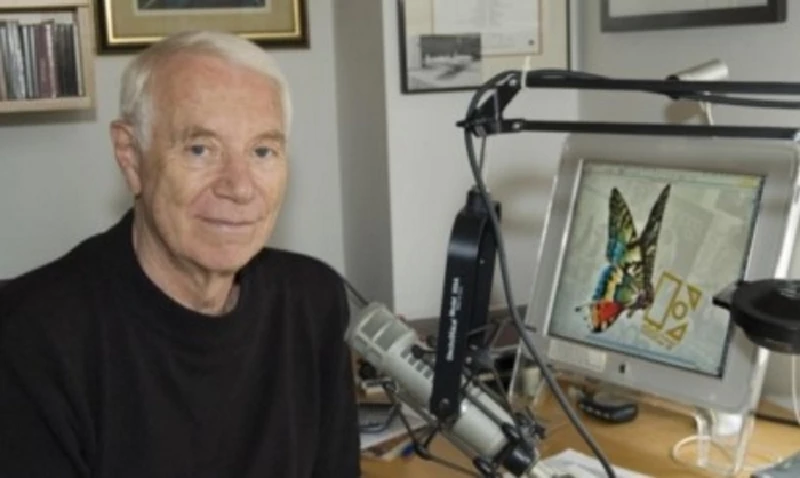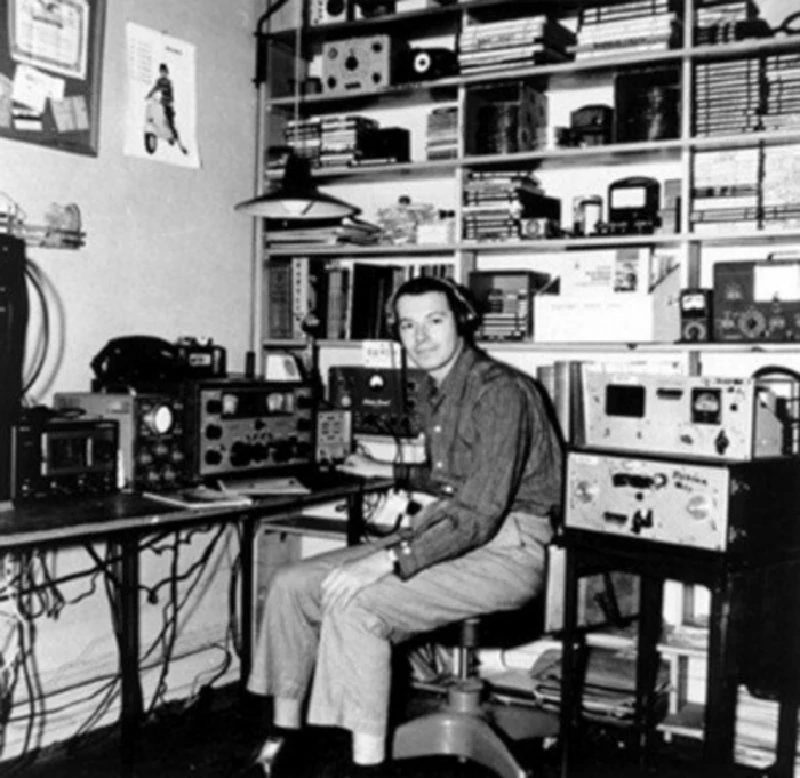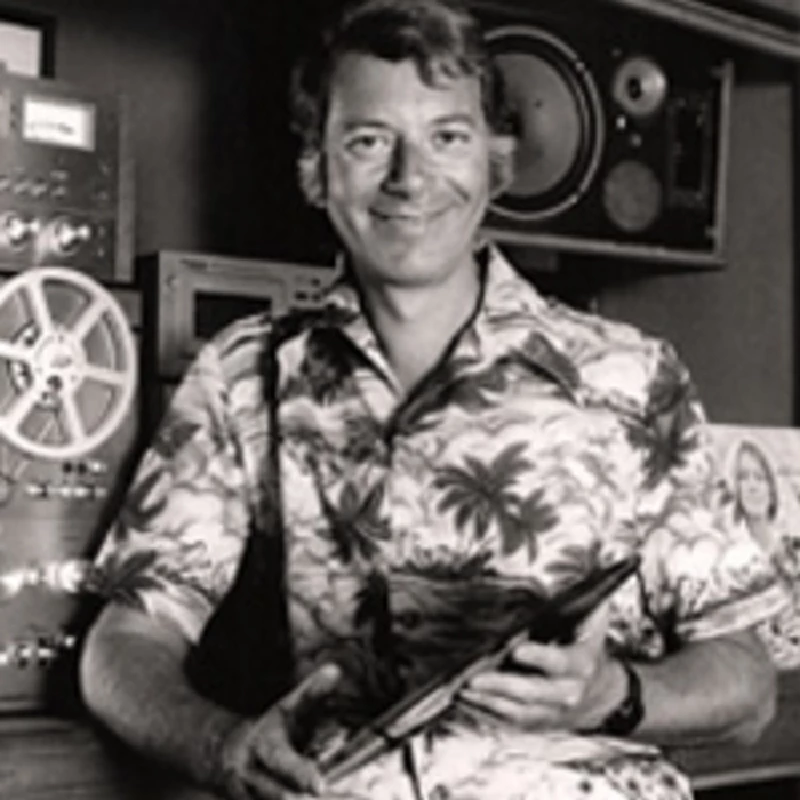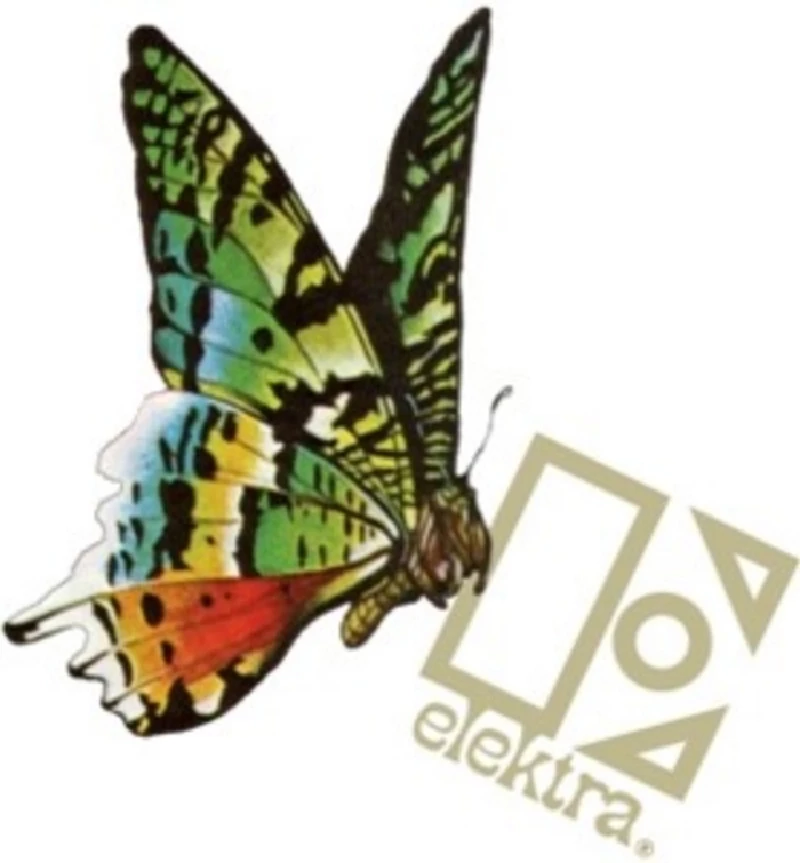Jac Holzman - Interview
by Anthony Strutt
published: 5 / 11 / 2010

intro
Jac Holzman was the owner of Elektra Records, whose acts included the Stooges, the Doors and Love. He speaks to Anthony Strutt about Elektra and a new book about it
Jac Holzman is 79 years young. He started his label, Elektra Records, in 1950 when he was still a teenager. Many of Elektra’s early releases were World Music records before World Music became fashionable. Holzman also released sound effects albums, but mostly it was folk records that Elektra Records released in those early years. He discovered Judy Collins who became a huge folk singer in 1962 and went on to release eighteen albums for the label. Elektra released the first two albums by the Stooges, ‘The Stooges’ (1969) and ‘Fun House’ (1970). It also signed Love and then the Doors, a band that Holzman wasn't affected by until he saw them for the fourth time but whose total output susbequently came out on Elektra Records. Holzman finally signed the Doors when he was told by Love’s Arthur Lee to get there early for a Los Angeles concert they were playing to see the support band. Holzman once more didn’t understand them at all at first, until they played a cover of the Weill-Brecht number, ‘Alabama Song’, at which point they made total sense to him. Other acts that released albums on Elektra included Queen, Carly Simon, Nico, Tim Buckley, MC5, Bread, and David Gates. After Holzman retired from Elektra in 1973, he was involved with the invention of what became MTV and was also in the team that brought to fruition the laser disc, the CD and home video. Pennyblackmusic met Jac Holzman when he was in London to promote a second book about Elektra Records, ‘Becoming Elektra: The True Story of Jac Holzman’s Visionary Label’. Part of the condition of this interview was it had to be short, as he had already been talking for over an hour just prior to this at a book launch. This interview ran for less than ten minutes but despite its short length Holzman was revealing about some of the myths that surround Elektra Records. We are very grateful for him taking the time to speak to us. PB: You were born in 1931 and formed the label in 1950. JH: Yes, I was 19 if you work out the figure. PB: In 1950 this was pre-Beatles, pre-Dylan and also pre rock and roll. JH: It was pre-Beatles by thirteen years, pre-Dylan by eleven years. PB: I would imagine that the music that you were listening to was the music that you heard on your grandma's radio. JH: No, I was listening to folk music in my dorm room at St John's College in Annapolis in Maryland. It was a big influence, because I liked the directness and the passion of it and I hadn't heard stuff like that before, and people like Leadbelly and Woody Guthrie. PB: Was it about music as communication tool and talking to you in particular then? JH: If you are asking about why I started the label, it was because of the energy of the technology. I loved the music as well and it was a combination of the two. PB: Why did you call the label Elektra? JH: It was after a figure from Greek mythology. PB: How did the famous butterfly logo come about? JH: It was just one of those things. I wanted to change the logo. We had the square like E, which was on a number of albums prior to then, and the summer of love coming up. Things were changing and I thought of the notion of a chrysalis and then the idea of a butterfly came out of that. PB: The early releases were primarily folk music. JH: It was folk music. Folk music was a big deal at the time. There was a lot of world music as well. We continued to do that till the early 60s and singer-songwriters as well. We just followed our ears really and that took us to the Butterfield Blues Band, Love and the Doors and in the mean time the singer-songwriter types were all becoming bigger. PB: Did you discover all your bands or did some come to you because of the label? JH: People came to us because they respected the label. After signing the Doors, I found out they all had Elektra Records albums in their collections. John Densmore was a huge Love fan and the Doors all wanted to be as big as Love. PB: What are your fondest memories of working with Jim Morrison? JH: He was easy for me to work with. Jim was very professional in the studio. PB: Were there any censorship problems with the bands?, JH: No, not at all. The bands could do what they wanted to do. PB: What does the future hold for you now? JH: I want to carry on in the digital age. In the Warner Music Group, for whom I do a lot of work for, we still have lots of work to do. PB: There are two books about Elektra, 2000’s ‘Follow the Music: The Life and Times of Elektra Records in the Freat years of American Pop Culture’ and the new book ‘Becoming Elektra’. JH: ‘Follow the Music’ was about the birth of the label and has lots of photographs in black and white. ‘Becoming Elektra’ is much deeper and has richer, better photographs, I don't compare one to the other. If you want to get a balance for the label, you need both. Thank you for giving me the opportunity to talk to you, PB: Thank you.
Picture Gallery:-




most viewed articles
current edition
Carl Ewens - David Bowie 1964 to 1982 On Track: Every Album, Every SongArmory Show - Interview with Richard Jobson
Colin Blunstone - Thalia Hall, Chicago, 16/7/2025
John McKay - Interview
Bathers - Photoscapes 1
Billie Eilish - O2 Arena, London, 10/7/2025
Visor Fest - Valencia, Spain, 26/9/2025...27/9/2025
Loft - Interview
Robert Forster - Interview
Sir Tim Rice - Interview
previous editions
Manic Street Preachers - (Gig of a Lifetime) Millennium Stadium, Cardiff, December 1999Heavenly - P.U.N.K. Girl EP
Beautiful South - Ten Songs That Made Me Love...
Oasis - Oasis, Earl's Court, London, 1995
Peter Perrett - In Dreams Begin Responsibilities Interview Part One
Prolapse - Interview
Boomtown Rats - Ten Songs That Made Me Love....
Coldplay - Wembley Arena. London, 16/8/2022
Trudie Myerscough-Harris - Interview
Pixies - Ten Songs That Made Me Love...
most viewed reviews
current edition
Davey Woodward - Mumbo in the JumboSick Man of Europe - The Sick Man of Europe
Lucy Spraggan - Other Sides of the Moon
Amy Macdonald - Is This What You've Been Waiting For?
Phew, Erika Kobayashi,, Dieter Moebius - Radium Girls
Bush - I Beat Loneliness
Suzanne Vega - Flying With Angels
Alice Cooper - The Revenge of Alice Cooper
Cynthia Erivo - I Forgive You
Blueboy - 2
Pennyblackmusic Regular Contributors
Adrian Janes
Amanda J. Window
Andrew Twambley
Anthony Dhanendran
Benjamin Howarth
Cila Warncke
Daniel Cressey
Darren Aston
Dastardly
Dave Goodwin
Denzil Watson
Dominic B. Simpson
Eoghan Lyng
Fiona Hutchings
Harry Sherriff
Helen Tipping
Jamie Rowland
John Clarkson
Julie Cruickshank
Kimberly Bright
Lisa Torem
Maarten Schiethart